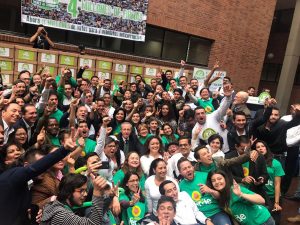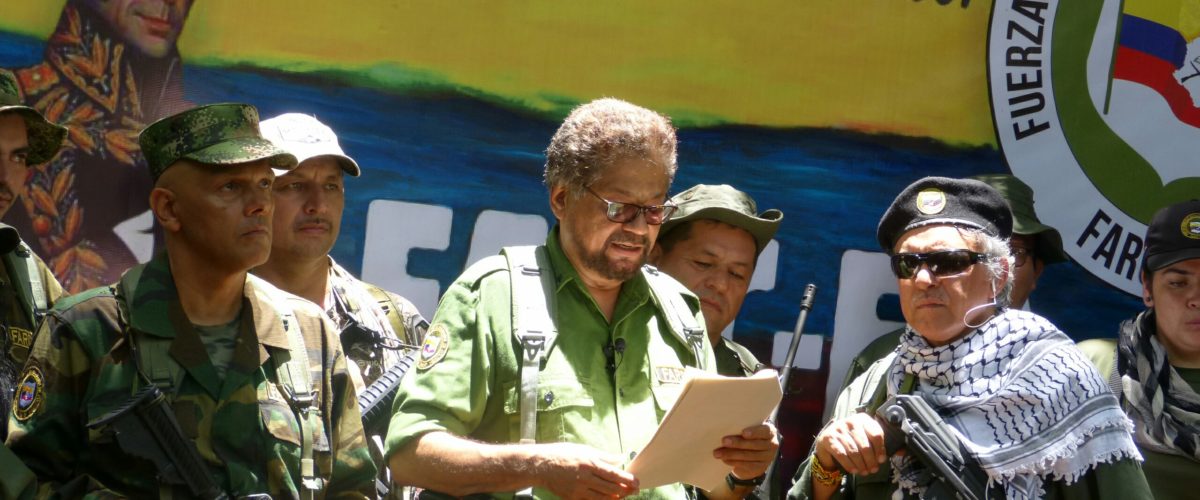
Supporters of anti-corruption consulta. Photo courtesy of @claudialopez.
In the end, over 11 million votes seemed further than most had expected but still fell half a million votes short of the magic number that was needed for the public anti-corruption consulta to pass through Congress. Over 2.6 million voted in Bogotá alone while 1.2 million people voted in the department of Antioquia.
Of the seven questions asked of the public on Sunday morning–ranging from the reduction of salaries and term limits of public officials, to the open disclosure of finances–the overwhelming answer was ‘¡Si!’ to every single proposition. Over 99% voted ‘Yes’ to every proposition on the consulta. The most popular proposition on the consulta (with 11,668,748 votes) was the one requiring jail terms for those convicted of corruption along with a lifetime prohibition from re-entering politics.
The consulta needed 12,075,756 votes to get through to a vote in Congress and the final tally recorded over 11.6 million votes, a number many noted in the media as far exceeding the total number of votes (10.3 million) that Iván Duque won en route to being President of Colombia. President Duque himself had received the highest number of votes in Colombian electoral history in June this year.
The turnout for the consulta also dwarfs the number of people who voted ‘No’ in the plebiscite relating to the peace accord between the Colombian government and the FARC; a victory that was achieved with only six million votes.
These facts alone have astonished many that a grassroots campaign has brought out large numbers for a cause that only had the status of a consulta; rather than a referendum, plebiscite or general election. The indication points to just how engaged a large proportion of the population are against continued corrupt practices within Colombian politics despite the large numbers of elections that have been held in the last six months alone. The large turnout also suggests that the appeal of the consulta extended beyond the left and included those of all political leanings.
That such a large turnout could be assembled on the topic of corruption will be credited to the many leaders who campaigned and sought votes with little in the way of campaign funding and political machinery to back them. Among them, the most visible leaders included former Congresswoman Claudia Lopez along with senators Antonus Mockus, Jorge Robledo, Angelica Lozano and Antonio Navarro.
For her part, Lopez tweeted that the turnout was a victory and that the crusade against corruption “neither begins nor ends today” and that she will present to Congress the seven propositions on Tuesday at 11am to ensure that the people’s voices have been heard and that true reform can occur.
¡GRACIAS COLOMBIA! Hoy ganamos todos! La #ConsultaAnticorrupcion ni empieza ni termina hoy. Los esperamos el martes 11am en el Capitolio a radicar los proyectos que cumplen el mandato ciudadano para que la clase política se reforme y nos deje de subir impuestos para robárselos!🌻 pic.twitter.com/zYaOi7L9q0
— Claudia López (@ClaudiaLopez) 27 August 2018
For now, however, the reggaeton videos will be retired with the consulta unlikely to move further as it stands. The status quo may remain for today, but 11.6 million votes would suggest that a growing population is becoming less tolerant with “business as always”.





